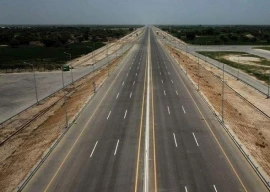
Talking to reporters at the Lahore Press Club, Khurshid Ahmad, the union general secretary, urged the federal government policy makers and the civil society to take note of the deaths of citizens in the hot weather in Karachi.
“It is sad that people are dying of intense heat in the country’s largest city. The KESC is adding fuel to the fire through long hours of load-shedding,” Ahmad said.

He said that the government had publicly acknowledged that the KESC had been receiving 650 megawatts (MW) of electricity from the Water and Power Development Authority every day and had been selling it at higher rates to consumers.
“The company also receives gas from the Sui Southern Gas Company at a subsidy. In this way, the company has been receiving subsidies worth billions of rupees annually from the government. They have been closing their power stations to minimise profits,” he said.
He said that the government should learn a lesson from the experience of privatisation in Karachi.
“The government should withdraw the decision to privatise profitable electricity distribution companies, including the Lahore Electric Supply Company (LESCO), the Faisalabad Electric Supply Company (FESCO) and the Islamabad Electric Supply Company (IESCO). Electricity is a basic need,” said the union leader.
Ahmad added that it was the state’s obligation to provide electricity to citizens under Article 3 and 10 of the Constitution.
“The privatisation of profitable electricity distribution companies will not be in public interest. It will give rise to inter-provincial disputes over water distribution.”
The federal government should increase the share of hydel and gas-fired thermal power to provide cheaper electricity and to overcome load shedding, he said.
He said that the government should take steps to conserve electricity. “The decision to close commercial centres at 7pm should be enforced effectively.
The electricity should be diverted to the industries, agriculture and domestic consumers,” he said.
He said that the 150,000 electricity workers, their trade unions, civil society and progressive political parties would launch a countrywide protest movement if the demands were not met.
Abid Hassan Minto, the Awami Workers Party chairman, Syed Tanzeem Hussain Naqvi, a former WAPDA member, and Hussain Naqi, a Human Rights Commission of Pakistan representative, also addressed the press conference.
Published in The Express Tribune, June 30th, 2015.



1730959638-0/trump-(19)1730959638-0-165x106.webp)



1724018265-1/City-Traffic-Police-(CTP)1724018265-1-270x192.webp)









COMMENTS
Comments are moderated and generally will be posted if they are on-topic and not abusive.
For more information, please see our Comments FAQ